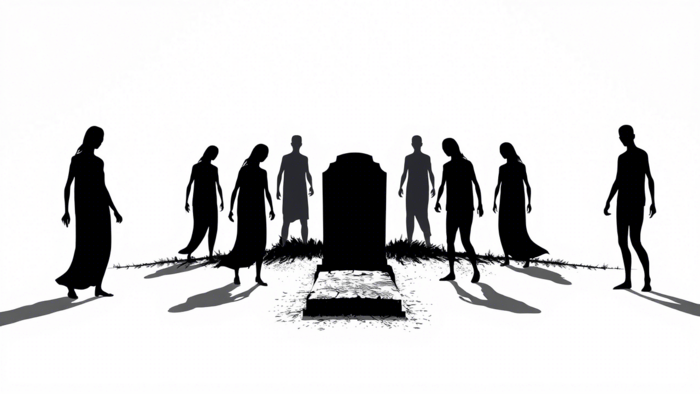The living dead
There is deep sorrow when a loved one dies. Yet I wonder: why don’t we feel the same grief and respect when we erase someone from the map of our lives, rendering them dead to us? Could it be that all this stems from a selfish relationship we ourselves create? In such a relationship, perhaps it is easier to erase and “murder” human connections without leaving room for deeper emotion.
Have we, ultimately, been taught in such societies to honor and mourn only the truly dead, and not those who, though still alive, have died to us? Perhaps the fault lies in the superficial perception that death is exclusively physical, ignoring how a living person can transform into a ghost lost in the void of memories, buried under the weight of indifference or bitter silence.
We think of death as a singular, natural final act. But how often do we acknowledge emotional death the death of trust or love? Those who kill with an action, a word, or an absence may not don black mourning attire, yet the wound they leave resembles an anonymous grave. And while we light candles for the dead and share stories, for the living dead we choose oblivion as though our decision to kill them psychologically doesn’t even deserve a tear.
Perhaps the answer lies in an uncomfortable truth: It’s easier to mourn something uncontrollable, like death, than to confront the responsibility of having broken a heart yourself. The living dead remind us of the wounds we inflict deliberately, and for this, we prefer to hide them in the shadow of our numbness.
